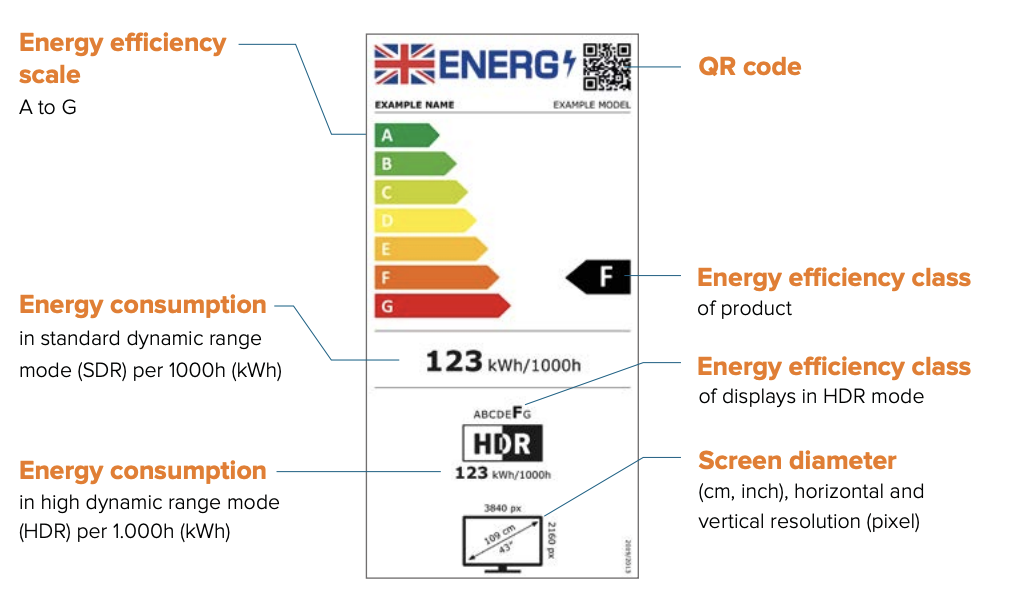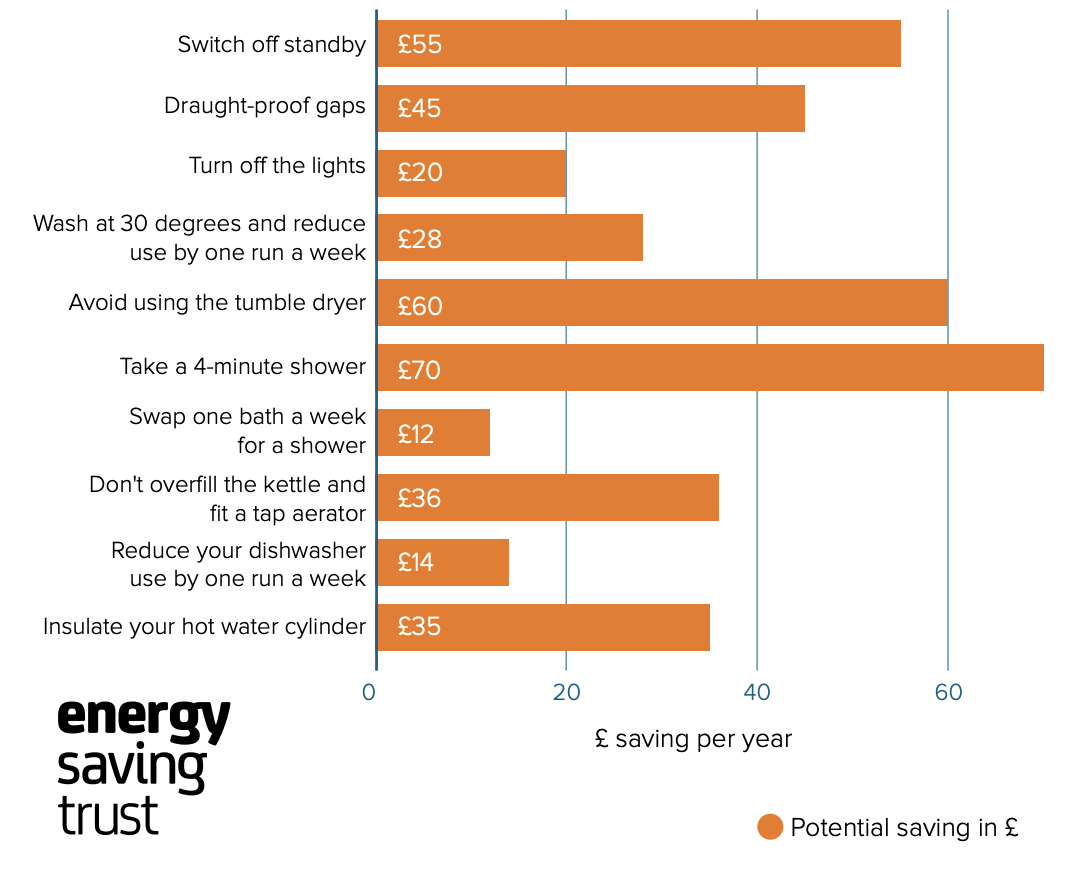With energy bills skyrocketing, there has never been a better time to review our habits and environment to save money and reduce energy consumption. Aside from the big ticket items like insulating your home, there are some less expensive immediate changes that can make a difference. You may be surprised how a few simple changes in your home could make a big difference.
View our full fact sheet here.
Changing your habits
Wet Appliances
Wet appliances such as washing machines, tumble dryers, kettles and anything else that uses water account for 25% of electrical use in an average household. Making the below adjustments could therefore represent a big saving:
- Washing at 30 degrees and air drying clothes
For your normal laundry load, a 30 degree wash cycle is perfectly fine with the quality of most detergents nowadays, but bear in mind that it’s counterproductive if you don’t wash full loads – washing a small load at 30 degrees is more wasteful than washing a full load at 40 degrees - Kettle boiling the minimum amount of water you need or once boiled keep in a flask.
We wouldn’t dare suggest drinking less tea or coffee, but reducing the amount of water in the kettle to how much you need will save money and energy!
Lighting and electric appliances
“It looks like Blackpool illuminations in here!” – We’ve all heard it, but simply turning off the lights as you leave a room can make a big difference to your energy usage. In an average household, lighting accounts for 16% of electrical use. Similarly for household electrical devices: leaving them on standby accounts for 19%.
There are many other methods to reduce energy usage, such as:
- For each degree you cut the thermostat, expect to cut bills by around 4% – Money Savings expert
- Bathing less and taking shorter showers.
- Don’t overload your fridge and freezer, as this increases the energy they use.
- Closing curtains at night.
- Instead of heating an entire bedroom, consider using an electric blanket to keep warm.
- Fluffy onesies may not be a high fashion item but they certainly keep you toasty warm and are a small investment.
Changes to your environment
Switching to LED bulbs
You can save £2-3 per year for every traditional halogen bulb you switch to a similarly bright LED bulb. This is not exclusively about your standard bulbs either – many security lights, floodlights and decorative lighting still use halogen bulbs as standard.
Draft Exclusion
By catching those pesky draughts around doors and windows, you could save up to £45 per year. This will vary depending on the age of the building you live in, as can the cost of draught proofing. Whilst professional draught proofing can cost around £200, it can be done much cheaper with a trip to the DIY shop
Buy more energy efficient appliances
You can make better choices with the appliances you buy too – the energy label tells you how much energy that appliance uses, comparing it to similar appliances. This can help you find appliances that use the least amount of energy and therefore save you some money on your bills
The rescaled energy label for televisions and electronic displays

- Your radiators work by radiating heat into the room however it is also radiating into the wall that it is fixed to. Radiator reflector panels can be fitted behind your radiators and work by reflecting that heat, that would otherwise be lost into the wall, back into the room.
- Water saving shower heads can give around a 2% saving
How much could you save?
Add up the potential £££ savings available for each energy saving action with our bar chart.

Save money and the environment with your energy usage
Incorporating energy-saving practices into our daily lives is crucial for both the environment and our wallets. From simple habits like turning off lights and unplugging devices to more significant investments in energy-efficient appliances and renewable energy sources, every effort counts.
By collectively making these changes, we can make a meaningful impact on reducing greenhouse gas emissions, conserving valuable resources, and mitigating the effects of climate change. Remember, energy conservation is not just about saving money; it’s about safeguarding the planet for future generations: financially and environmentally.




